MIHO's Healthy Smile Life
from webWD
脱水症状ではありませんか?
Are You Dehydrated?
https://www.webmd.com/diet/ss/slideshow-diet-dehydration
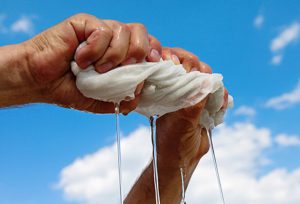
What’s It Mean?
It’s when you lose more water than you take in. That makes it harder for your body to do some basic jobs, like keep your temperature steady and clear out waste. You lose water in your sweat, tears, and every time you go to the bathroom. Even breathing takes a little out of you.
url
脱水症状とはどういうことか?
摂取する水分よりも失う水分が多い場合です。脱水症状に陥ると、体が自分の体温を安定させ、そして不要物を排除するようないくつかの基本的な仕事をすることが困難になります。汗、涙、そしてトイレに行く度に水分を失います。呼吸でさえ、少量ですが水分は排出されます。
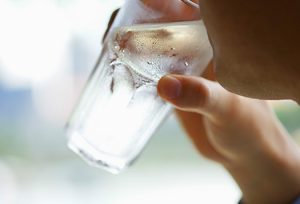
Is Thirst a Sign I’m Dehydrated?
Yes, but no need to panic. By the time you get the urge to quench your thirst, you’re already a little dehydrated. As long as you pay attention and snag a drink when your body tells you to, it’s not a problem. For older adults, the lag might be a little longer. So it can help to make a habit of drinking water.
url
のどの渇きは、自分が脱水症状であるサインなのでしょうか?
はい、しかしパニックになる必要はありません。喉の渇きを癒したいという衝動が出る頃には、すでに少し脱水状態になっています。自分の体があなたに指示したとき、注意を払いそして飲み物を飲めば、それは問題ではありません。年配の方にとっては、サインはもう少し後で出るかもしれません。のどの渇きは、水分摂取の習慣作りに役立つかもしれません。
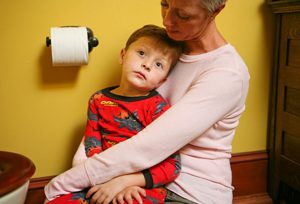
Who’s It Likely to Happen To?
You can lose over a gallon of water a day if you have diarrhea and throw up. Babies and kids are more likely than adults to get dehydrated because they’re smaller. Older adults need to be on the lookout because your sense of thirst gets duller with age. Kidney disease and some health conditions can make your body get parched. Pregnant or breastfeeding women need to drink more than usual.
url
どんな人が脱水症状になりやすいのか?
下痢や嘔吐の症状がある場合、1日に1ガロン(約4L)の水分を失うことがあります。赤ちゃんや子どもは、大人よりも小さいので脱水症状を起こしやすいです。のどの渇きの感覚は年齢とともに鈍くなるため、高齢者は注意が必要です。腎臓疾患、もしくはその他の病気があれば、体が乾燥してしまうことがあります。妊娠中または授乳中の女性は、通常よりも多く水分補給をする必要があります。
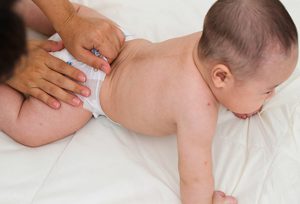
Symptoms in Young Children
Babies and little kids can’t always tell you what’s going on with their bodies. Look for a dry tongue, no tears when crying, no wet diapers for 3 hours, and more fussiness than normal. When it’s more severe, their mouths will be dry and sticky, and their eyes and cheeks may look sunken. They also may breathe fast and have a fast or weak pulse.
url
乳幼児の症状
赤ちゃんや小さな子どもは、自分の体で何が起こっているのかを伝えることはできません。乾いた舌、泣いているときに涙が出ない、3時間おむつが濡れていない、そして通常よりも機嫌が悪いかどうかを見てください。それがよりひどいとき、彼らの口は乾いていてネバネバしており、目と頬は沈んで見えます。また呼吸が早く、心拍が速い、もしくは弱くなっているかもしれません。
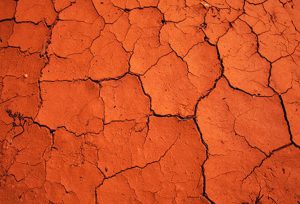
Symptoms in Older Kids and Adults
You might be thirsty, and your mouth might feel dry or sticky. You won’t pee very often — under 4 times a day. When you do go, there may not be much pee, and it’ll be dark or have a strong smell. You may feel dizzy or lightheaded, and you may pass out. As it gets worse, your thirst cranks up. Your breathing and heart rate may be faster than normal. You can overheat, and you might feel confused or cranky.
url
子どもと大人の症状
のどが渇き、口が乾いているかべたつきを感じるかもしれません。おしっこにいく回数が少なく、1日に4回以下です。おしっこの量が少なく、色が濃く、または強い匂いがあるかもしれません。めまいやふらつきを感じたり、気絶することもあります。悪化するにつれて、のどの渇きは急上昇します。呼吸と心拍数は通常より速いかもしれません。過度に興奮したり、混乱したり不機嫌になるかもしれません。
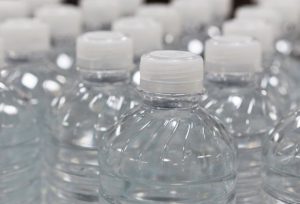
Should I Drink 8 Cups a Day?
This old rule has zero science behind it. But it’s fine as a rough guide. The amount you need to drink depends on how active you are, where you live, and your overall health. If you’re not sure you’re drinking enough, check the color of your pee. Clear or pale yellow means you’re all set. Darker means you need to drink up.
url
1日8杯の水分をとるべきか?
この古いルールは科学的根拠がありません。しかし、それはおおよその目安としては正解です。あなたが摂取すべき水分量は、どれくらい活動量があるか、住んでいる場所、そして全体的な健康状態によって異なります。十分に水分をとっているかどうかわからない場合は、おしっこの色を確認してください。透明または淡黄色は正常です。濃い色は、水分を摂取する必要があることを意味します。
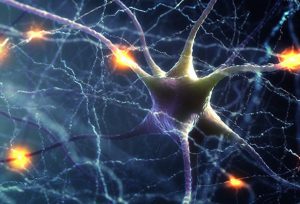
What About Electrolytes?
They’re just basic salts, like potassium, sodium, and calcium. But they have a hand in everything from how your nerves work to building healthy bone. Your electrolyte levels are closely tied to how much water is in your body. That means that if you’ve lost a lot of fluid, you’ll feel thirstier and pee less as your body tries to get the electrolytes back in balance.
url
電解質とは何か?
それらはカリウム、ナトリウム、カルシウムなどの塩基性塩です。それらは、神経がどのように機能するかから健康な骨を造ることまですべてに関係しています。あなたの電解質レベルはあなたの体内の水分量と密接に関係しています。つまり、水分をたくさん失った場合は、身体が電解質のバランスを取り戻そうとするため、より喉が渇き、おしっこの回数がより減少します。
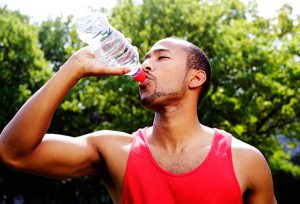
Do I Need a Sports Drink?
Almost never. These blends of water, salts, and sugars are made for high-level athletes, like marathon runners. Most of us don’t need anything more than water during exercise. You’ll only have to work harder to burn off the extra calories from sport drinks. If you do intense training for more than an hour, then they can make sense.
url
スポーツドリンクは必要なのか?
ほとんど場合、それは決して必要ではありません。これらの水、塩、砂糖のブレンドは、マラソンランナーのようなハイレベルのアスリート向けに作られています。私たちのほとんどは、運動中に水以外何も必要としません。スポーツドリンクから摂取してしまった余分なカロリーを消費するために、一生懸命努力するしかありません。 しかも1時間以上集中トレーニングを行わないと意味がありません。

Oral Rehydration Solution
When dehydration is mild or even moderate, you can often kick it with plenty of water. But if you have severe diarrhea or are throwing up, an oral rehydration solution might help. It’s more often kids who need one. The special mix of salts and sugars is a closer match to what the body needs. You can buy it over the counter at a drugstore.
url
経口補水剤
脱水症状が軽度または中程度の場合は、たっぷりの水を摂取することで解決します。しかし、重度の下痢や嘔吐の症状があるならば、経口補水療法は助けになるかもしれません。それを必要とするのは、ほとんどが子どもたちです。塩と砂糖の特別な組み合わせは、体が必要とするものによく似ています。ドラッグストアで購入できます。
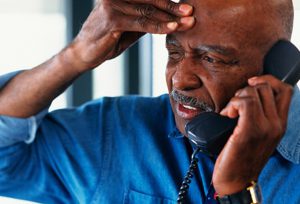
When to Call Your Doctor
When you see symptoms of severe dehydration, call your doctor right away. It can hit kids quickly, so it’s best to check in sooner rather than later.
Signs include:url
- Diarrhea for more than 24 hours
- Feeling dizzy, confused, or faint
- Can’t keep fluids down
- No energy
- Fast heartbeat or breathing
- Black or bloody poop
お医者さんにかかるタイミング
深刻な脱水症状がある場合は、直ちにお医者にかかってください。もし子どもにそのような症状がある場合には、今すぐにお医者さんにかかりましょう。
以下のような症状
- 下痢が24時間以上続いている場合
- めまい、混乱、失神
- どうしても水分を胃から戻してしまう
- エネルギーがない場合
- 鼓動や呼吸が早い場合
- 黒や血の混ざったうんち
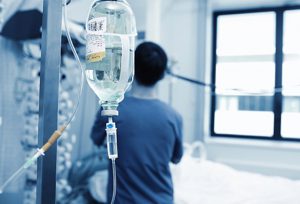
Emergency Treatment
When your water levels get too low, you can’t tackle dehydration on your own. You’ll need to be treated at a hospital. The idea is the same — to get fluids in you and to get your body back in balance. Doctors will give you the treatment through a vein with an IV, because it gets water and salts into your body much faster than you’d be able to drink them.
url
緊急の治療
体内の水分量が低くなりすぎると、自分で脱水症状の解決に取り組むことができないので、病院で治療を受ける必要があります。考え方は同じです – 体内に水分を入れて、体内のバランスを取り戻すことです。水分を口から摂取するよりもはるかに速くあなたの体に水と塩を入れることが可能なので、お医者さんはIV(静脈内注射)を使って治療を行うでしょう。
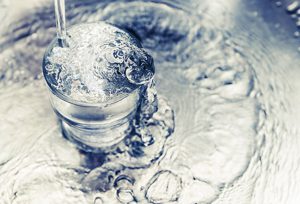
Can I Drink Too Much?
You can, but it’s not very likely. When you drink more than your kidneys can handle — and that’s a lot — you end up with a condition called hyponatremia. This is when your sodium levels get very low, causing your cells to swell up. It can be deadly, but rare. It mostly only happens to people who compete in intense long-distance races.
url
大量の水分を摂取することができるでしょうか?
できますが、それは現実的ではありません。腎臓が処理できないほど大量の水分を摂取すると、低ナトリウム血症と呼ばれる状態になってしまいます。これはナトリウムレベルが非常に低くなり、細胞が腫れ上がる原因となります。致命的でありますが、まれにしかおこりません。それは激しい長距離レースに出場するような人にのみ起こります。

Tips for Staying Hydrated
If you just can’t remember to drink enough water, look for ways to build it into your day. water your go-to drink. Tip a glass at and between each meal. Or set a reminder on your phone to have a glass every hour. Some people find that carrying a water bottle does the trick. And if you’re hankering for a snack, have water instead. Sometimes, our bodies confuse thirst for hunger.
url
水分を保持するためのヒント
十分な水を飲むことを忘れてしまうなら、1日のうち水分をきちんと摂取する方法を探してください。水のことを気にしてください。食事と食事の間に水分をとりましょう。または、1時間ごとに携帯電話にアラーム設定して、水分補給を促します。水のボトルを携帯することで水分補給を意識する人もいます。そして、おやつを食べるのであれば、代わりに水を飲んでください。体は時々、空腹と喉の渇きを混同することがあります。

